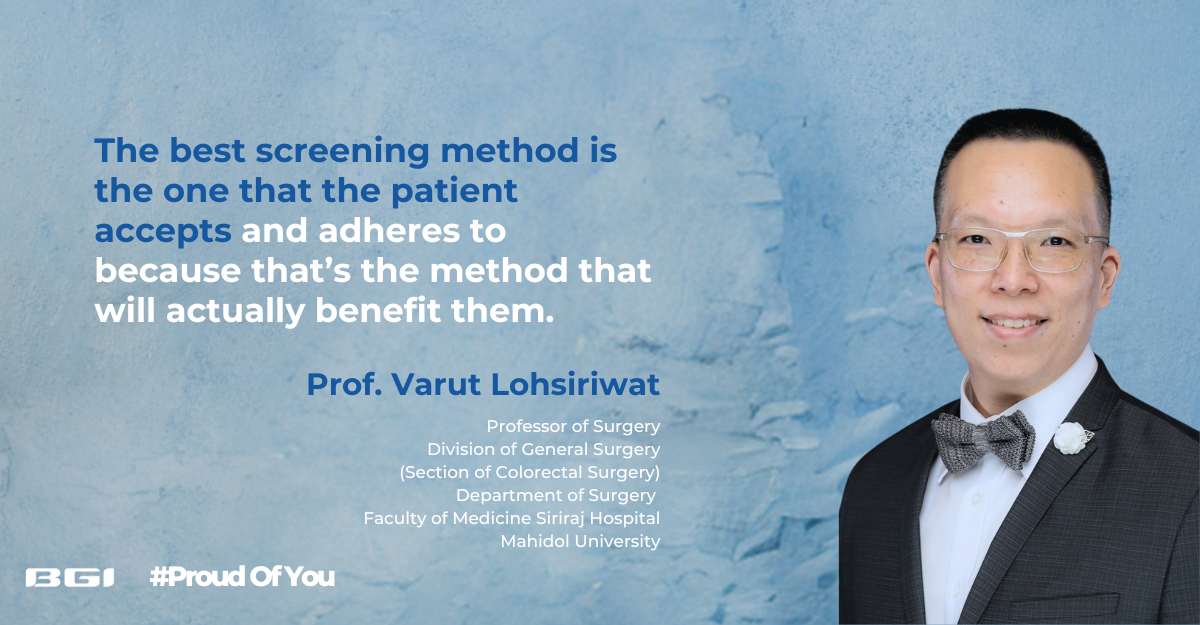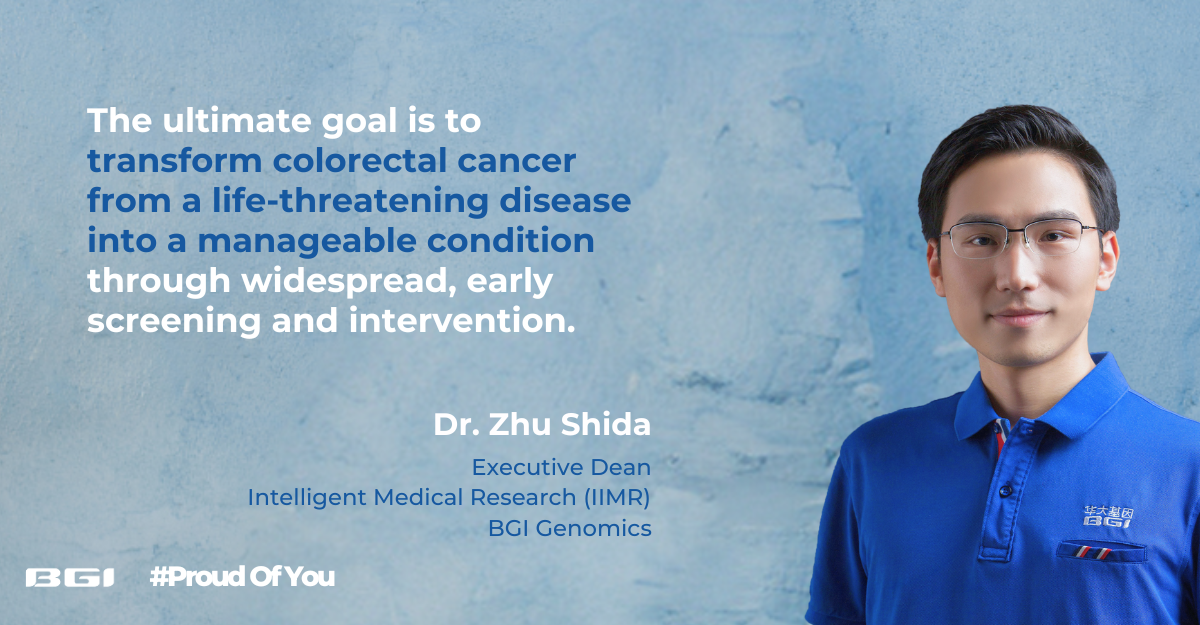Will Colorectal Cancer Become a Chronic Disease? | BGI Insight
2024-06-06

Colorectal Cancer (CRC) is set to transform from a severe disease to a controllable condition through early detection and intervention. “The ultimate goal is to transform colorectal cancer from a life-threatening disease into a manageable condition through widespread, early screening and intervention”, said Dr. Zhu Shida, Executive Dean of the Institute of Intelligent Medical Research (IIMR), BGI Genomics.
To better understand the global status of colorectal cancer (CRC) in the medical setting and seek ways to close the awareness gap in the future, we’ve invited two experts: Prof. Varut Lohsiriwat, from Mahidol University, and Dr. Zhu Shida, from BGI Genomics, to share their thoughts after reading the BGI Genomics 2024 Global State of Colorectal Cancer Awareness Report.
With the improvement of detection precision and accuracy of molecular biotechnology, CRC can be identified and addressed at earlier stages, greatly improving survival rates and the quality of life for those affected.
The COLOTECT Fecal Gene Methylation Detection is an example of a non-invasive fecal DNA test. It can provide early warnings of abnormal intestinal lesions through the use of sensitive molecular biology techniques. Unlike colonoscopy, it does not require preoperative preparation and fasting.
Gold Standard with Limitations
From the perspective of clinical medicine, colonoscopy is the gold standard for CRC detection. It can provide the most accurate results during the early stages of cancer development, yet it has limitations. Prof. Varut Lohsiriwat, a Professor of Surgery in the Division of General Surgery (Section of Colorectal Surgery), Department of Surgery, Faculty of Medicine Siriraj Hospital, Mahidol University, highlights this challenge.
Professor Varut noted, “Colonoscopy requires an appointment and queuing, which can be a hassle for many patients due to limited hospital resources and long waiting times.” As a result, patients frequently delay making an appointment until they experience symptoms.
Fecal DNA Test can be the First Step
Early symptoms of CRC are often subtle and similar to common intestinal diseases such as enteritis and hemorrhoids; this similarity often leads to late-stage diagnoses. Data show that 20% of CRC patients have metastases at the time of diagnosis, with the liver, lungs, peritoneum, and local lymph nodes being common sites of spread. By the time symptoms appear, some cases are already in Stage IV, resulting in a drastic drop in the 5-year survival rate from 90% in Stage I-II to 14% in Stage IV.
Non-invasive fecal DNA testing, which has higher accuracy and is widely accepted by patients according to the report, can be used as a first step before a colonoscopy. If the result is positive for biomarkers, a colonoscopy can be performed for a more detailed diagnosis. “The best screening method is the one that the patient accepts and adheres to because that’s the method that will actually benefit them," Prof. Varut highlighted.

Lucky Draw!
"In Thailand, everyone likes to draw prizes,” Professor Varut suggests innovative promotional programs for CRC early screening. The government or medical institutions can promote early screening by organizing a lottery for those who receive the screening. "It's a win-win," he explains.
The proposed approach blends local culture with public psychology to encourage early screening participation. By doing so, it holds the potential to significantly lower CRC incidence rates and ease long-term financial strains on the local healthcare system.
While colorectal cancer remains a formidable health challenge, innovative approaches and technological advancements offer a promising future for improving early detection and reducing the global burden of this disease. "By continuously improving our methods and maintaining a patient-centric approach, we are committed to playing a pivotal role in the global fight against cancer," said Dr. Zhu.

Dr. Zhu envisions the future and concludes, “At BGI Genomics, we recognize that there is a gap [between acceptance and accessibility] and we focused our efforts on developing advanced molecular biology testing techniques to close the gap. The ultimate goal is to transform colorectal cancer from a life-threatening disease into a manageable condition through widespread, early screening and intervention.”
Read more: